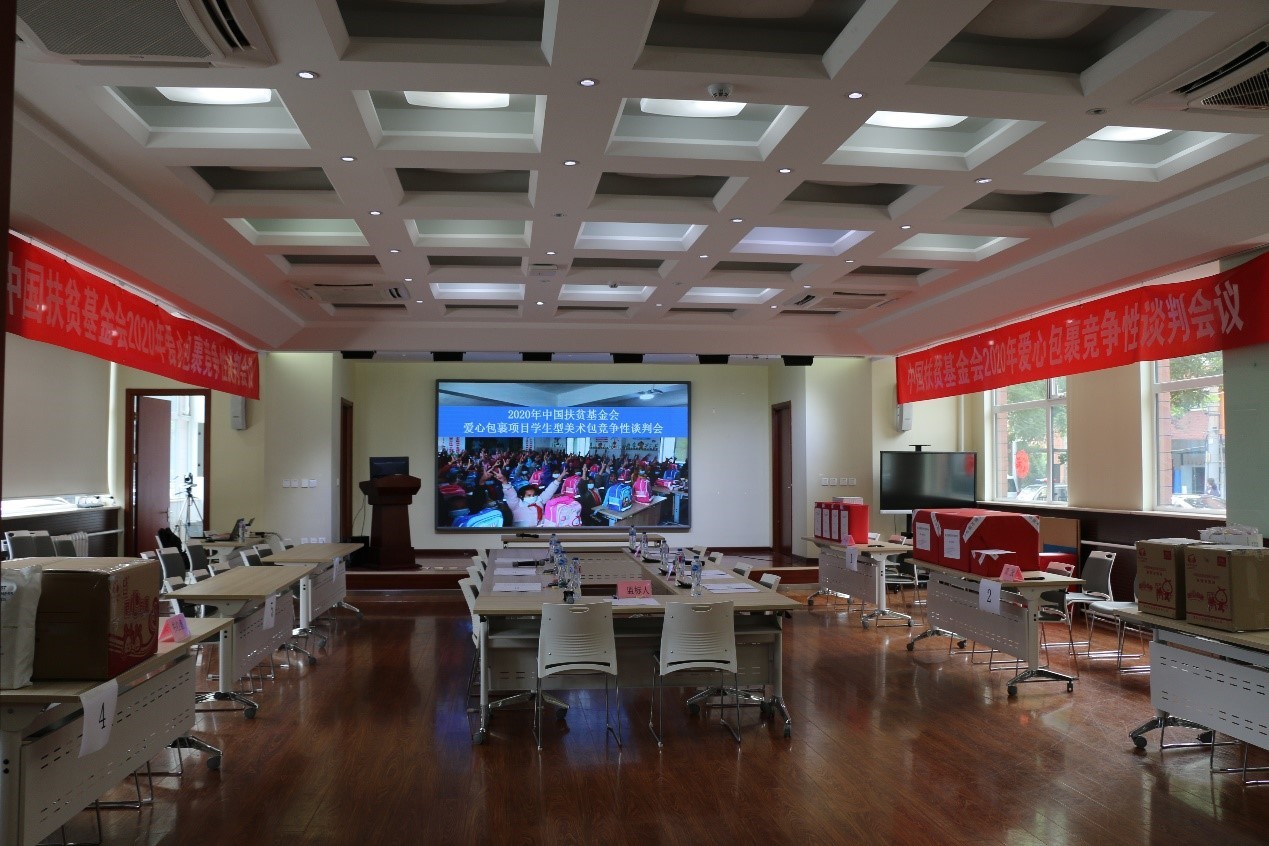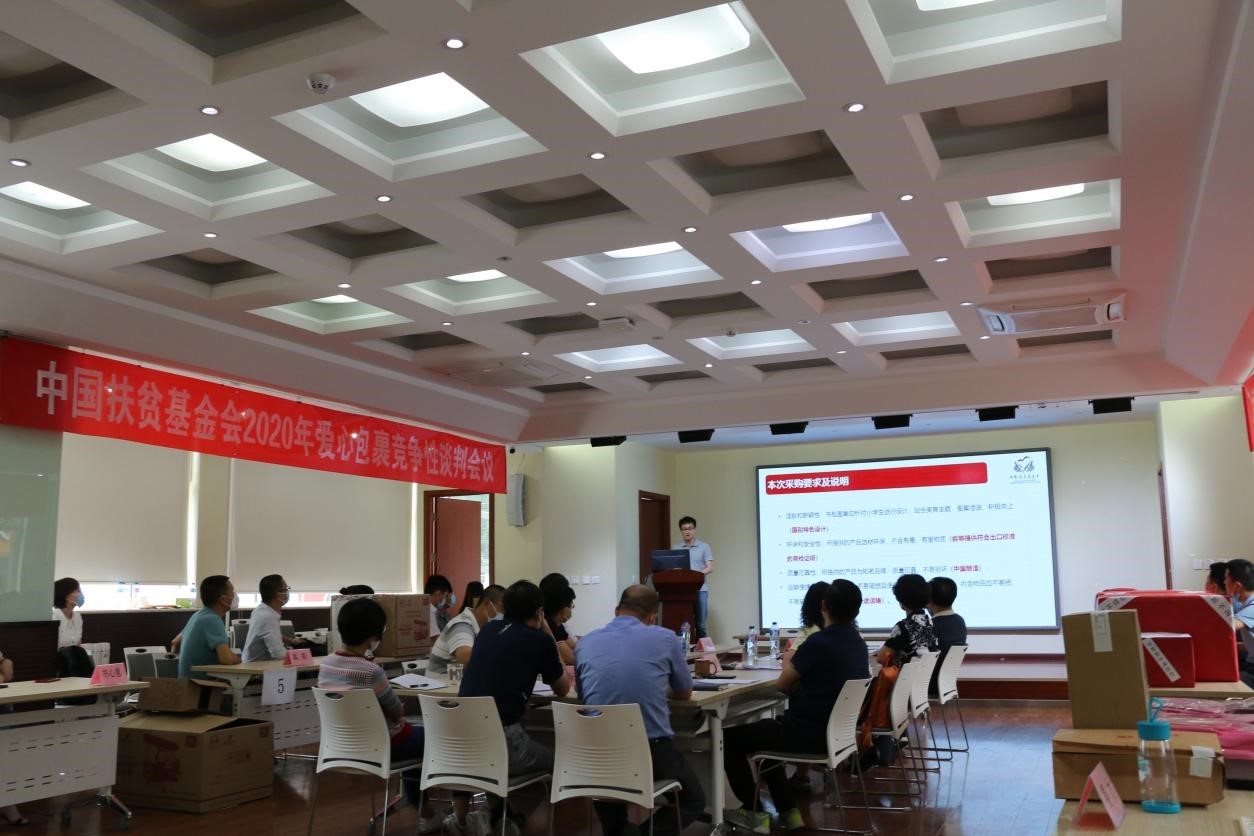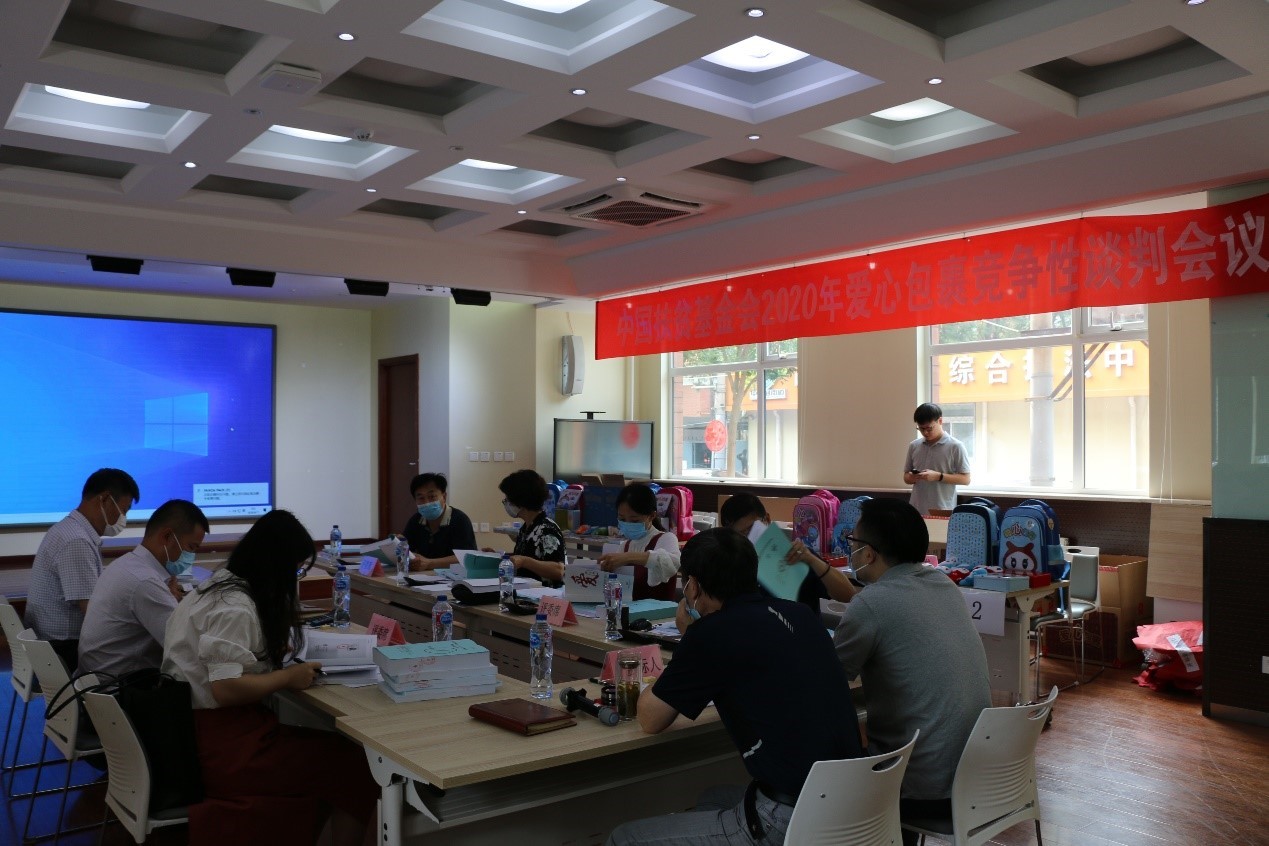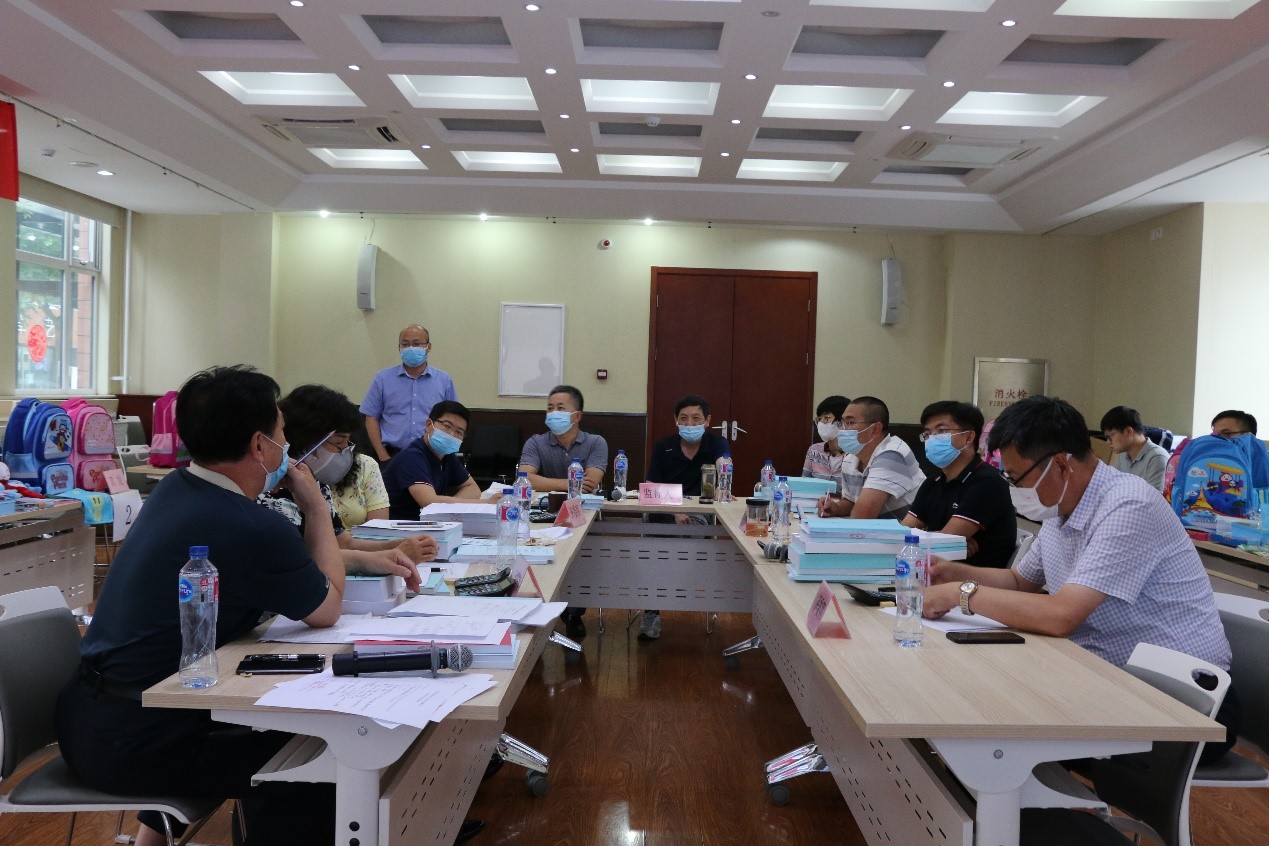The Competitive Negotiation of Panda Pack Project Successfully Held
On June 11, 2020, the Competitive Negotiation of Panda Pack Project was held at China Foundation for Poverty Alleviation (CFPA). There were several well-known stationery bidders participating in this negotiation, which include TureColor, Beifa, Comix, etc.

Ready for the competitive negotiation
The negotiation was divided into two sessions, encompassing the Domestic Panda Pack Project held in the morning and the Panda Pack Project in the afternoon. Both sessions had their separate evaluation panels which consisted of seven judges such as experts and professors from related fields, volunteer representatives, as well as the CFPA executives.
Specifically, at the first session, the panel was made up of three experts from the fields of procurement, quality inspection, as well as culture and sports, an art teacher working for a primary school, an volunteer representative, and two senior executives from CFPA. The second session replaced two original judges with two new experts from the industries of public health and international philanthropy. The diversity of two panels improved the professionalism and transparency of this competitive negotiation.
The agenda of this competitive negotiation is comprised of five segments. Firstly, the program officer of CFPA gave a brief introduction of the background of this tender. Secondly, the evaluation panel inspected bidding documents and product samples submitted by all bidders. The third segment was for the bidder to present their products in front of the panel and answer questions from the experts. Fourthly, all bidders submitted their final offer, which was to address those questions put forward by the panelists in the previous segment. Finally, the panel made decisions and recommended three bidders to become the suppliers of the domestic and international Panda Pack Project.

Zhang Shengyue, Program Officer of CFPA introduces the background of this tender
During the second segment, each panelist focused on their own professional field. For example, the procurement expert was mainly responsible for checking company’s qualifications and financial strength. The quality inspection expert concentrated on the safety of material used. The educational practitioner emphasized on evaluating the practicality of the products. The experts of health and international philanthropy had also played important roles in these two fields.

The panel reading the bidding documents
Atthe end of the bidding documents review, the panel checked each bidder’s sample products and simultaneously came up with questions from the perspectives of design, materials, quality, safety, innovation, etc. Particularly, they respectively focused on seeking for multidimensional expression of domestic and international cultural concepts during both sessions, and how it factually manifested in the products.

The panel inspecting sample products
The next segment was presentation and negotiation. The bidders made full use of the twelve minutes allocated to introduce their bidding plan and products.Based upon the presentation, the panel put forward more detailed questions and negotiated with the bidders.
Afterwards,the panel graded all bidders according to four principles, including business strength, comprehensive product evaluation, company qualification and value-added services input. The entireevaluating process was witnessed and supervised by the procurement supervisor of CFPA.

The panel discussing bidders’ strength and weakness
The Domestic Panda Pack Project was launched by CFPA on April 26, 2009, as a national philanthropy project dedicated to improving the comprehensive development and living conditions of rural primary school students in poverty-stricken areas. In February 2019, CFPA launched the Panda Pack Project jointly with Alibaba Philanthropy, and expanded to ten countries including Nepal, Myanmar, Ethiopia, Cambodia, Laos, Pakistan, Mongolia, Namibia, Uganda, and Zimbabwe.
